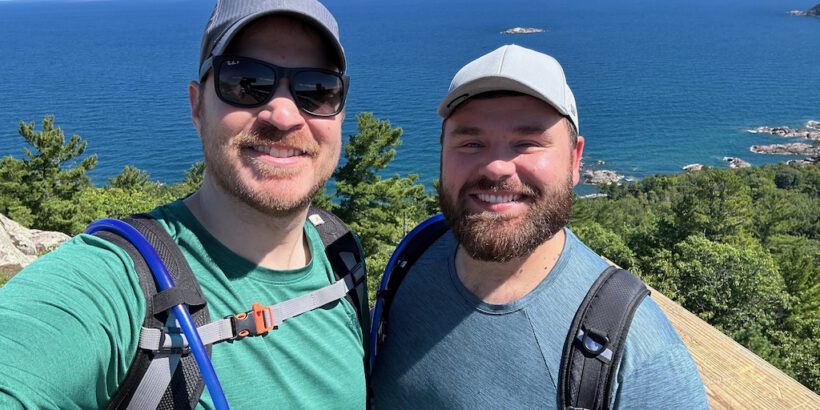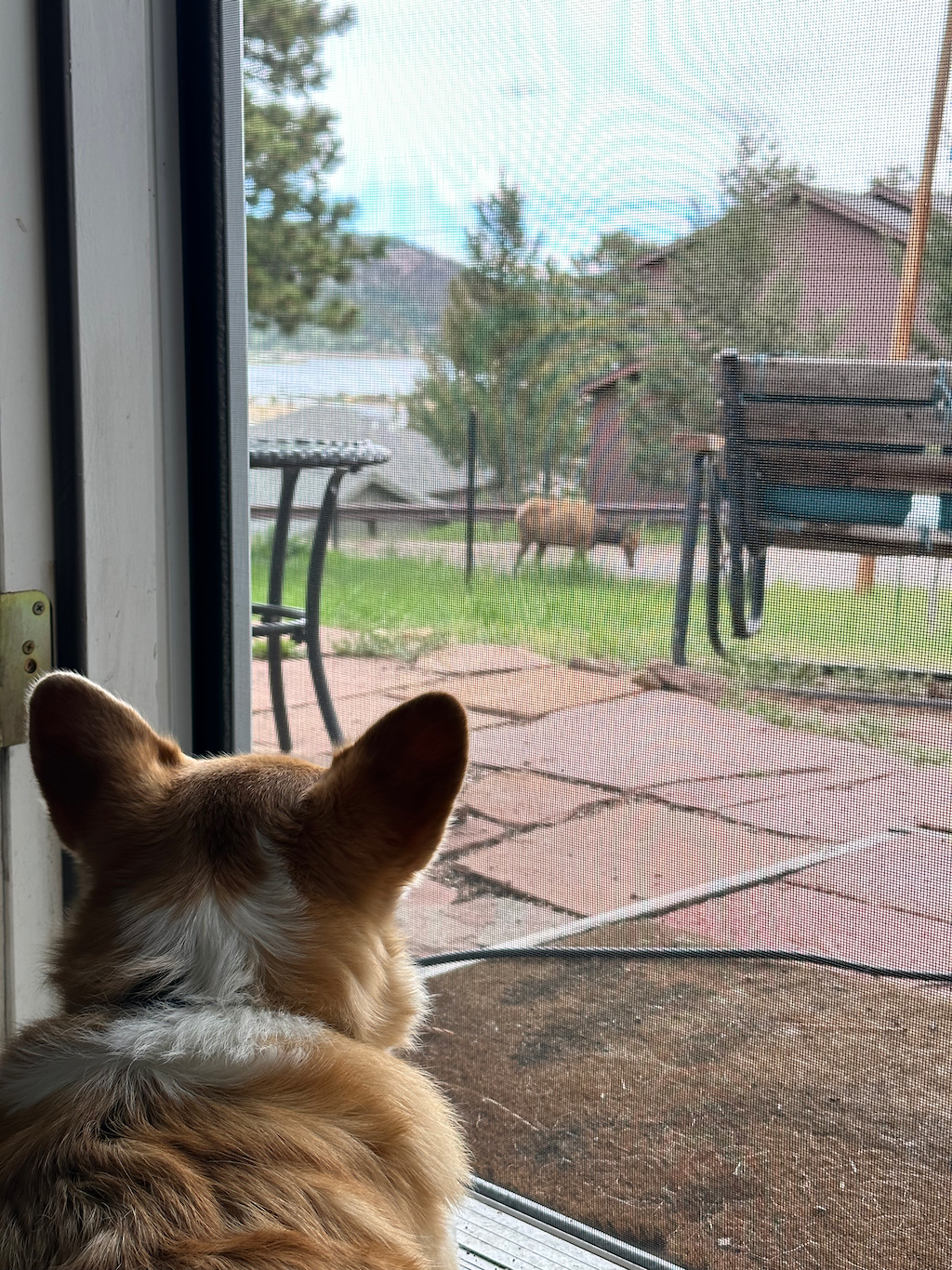The digital nomad lifestyle is a dynamic and ever-changing existence, demanding adaptability, resourcefulness, and a zest for exploration.
For the past six months, my partner and I have embarked on the digital nomad journey domestically around the US, and today, I invite you to delve into our reflections and insights gained along the way. From getting the cops called on me by a neighbor to having a booking cancelled on us, see how we’ve dealt with the unexpected.
Table of Contents
Long-term stays will save you money
If you haven’t already explored this savvy travel hack, booking longer stays on Airbnb and even hotels can lead to substantial savings.
It’s a little-known secret that can result in huge discounts (for AirBnBs, at least), making it a strategy well worth considering.
Even in cases where no automatic discount is triggered, don’t hesitate to reach out to potential hosts and initiate a conversation. Politely inquire if they’d be open to offering a discount, such as a 10% reduction, for your commitment to a long-term booking.
This negotiation tactic has yielded positive results for us on multiple occasions, and it’s a strategy that is definitely worth giving a shot.
Related: How Much Are Extended Stay Hotels Per Month?
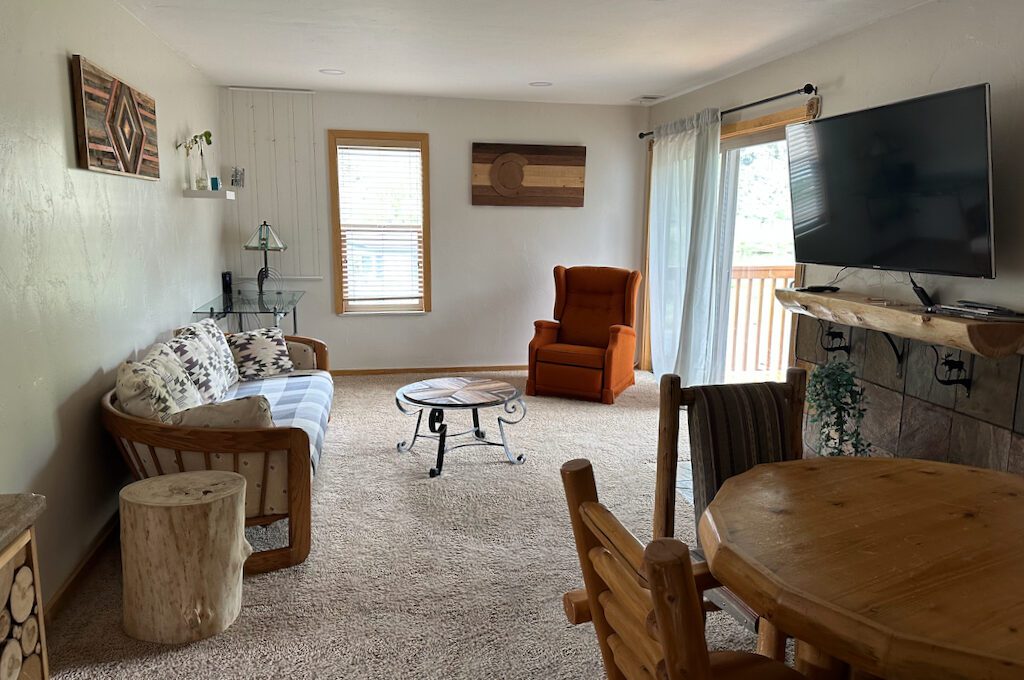
You probably won’t have your essential items figured out for a little while
In the lead-up to our decision to sell our possessions and embark on this nomadic adventure, we dedicated a considerable amount of time and thought to determine what essential items we’d need on this journey.
However, what we quickly learned is that these essentials have a way of evolving from month to month. The unpredictability of our lifestyle means that various factors can unexpectedly complicate our situation.
After we set out on our journey, we ended up discarding some items, acquiring new ones, and even replacing things altogether. In fact, it took us a good four to five months to reach a level of stability in terms of our belongings.
Yet, even as we find ourselves in a relatively stable situation now, we remain cognizant that change is the only constant in the digital nomad life. The unexpected could be lurking just around the corner, prompting further adjustments to our essentials.
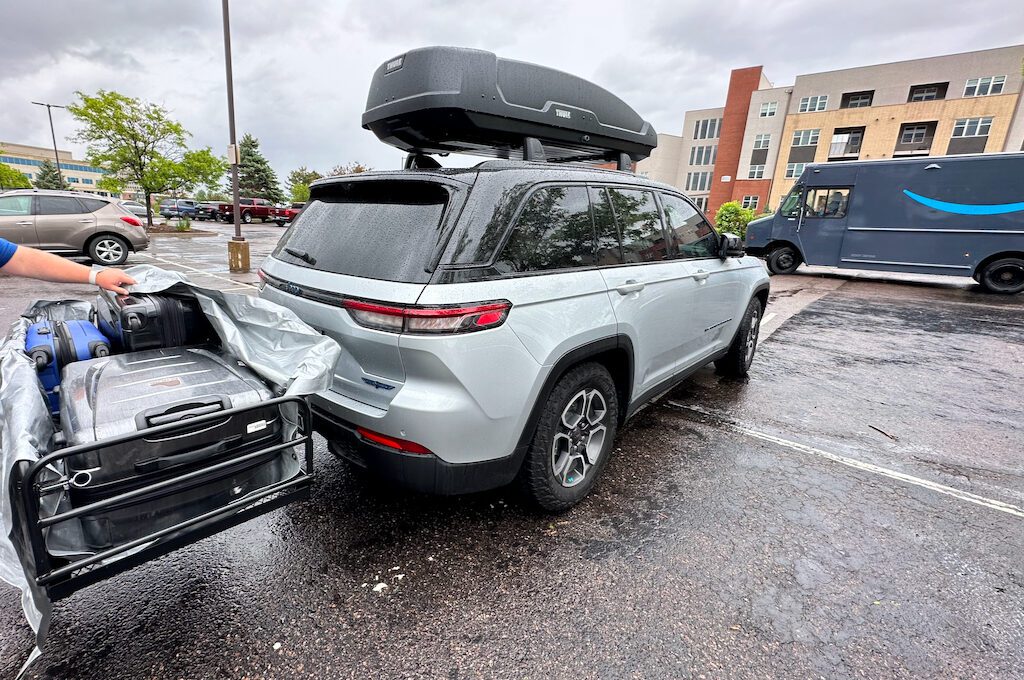
Logistics for every day life issues can be an extra challenge
Navigating logistics as a digital nomad on the road can often prove to be challenging.
One area where these challenges come to the forefront is in matters of car maintenance, which can be a particularly complex issue to manage for a nomad.
When it comes to your vehicle, planning visits to the auto shop necessitates more consideration than you would normally have to do. You not only need to find a suitable mechanic but also time the visit to allow for inspection and any necessary maintenance, parts to arrive, etc. This can sometimes feel like a logistical juggling act.
Similarly, addressing healthcare concerns, including doctor appointments, can present a unique set of challenges. Finding healthcare providers on the go and coordinating appointments can be an intricate task, especially when you’re in unfamiliar territory.
The same goes for barbers and any other type of service you might need in your life, such as vets, pet groomers, etc.
The solution to all of this? Well, one is just doing the extra research, often exhausting your options.
But the other solution is to just give you yourself more time in each location, as that’s usually the biggest complication. Remember, you never know what might arise.

Be prepared to optimize your organization skills
When we made the decision to leave our house and embrace the nomadic lifestyle, we opted to keep only a few cherished items in storage with family. Everything else, from our entire wardrobe to our collection of small kitchen items and an array of electronics, became our constant companions on this journey.
However, we quickly realized that in the whirlwind of travel, small items had a knack for getting misplaced or, worse yet, lost altogether.
The key to keeping your possessions safe and organized on the road is investing in the right tools and establishing a foolproof system.
Consider investing in a variety of containers and bags to categorize and store your items efficiently. Whether it’s a set of stackable storage bins for kitchen essentials or sturdy travel pouches for your electronics, having the right gear will help keep everything in its place.
Furthermore, it’s crucial to establish a system for where each item belongs.
Since many digital nomads find themselves in new living situations every month or so, quickly getting familiar with your new space and designating specific spots for your belongings is paramount. Creating a mental map of where things go will save you time and frustration in the long run.
See also: 11 Lessons Learned from Living in Hotels Full Time
Find your optimal stay duration for each location
If you have opted for the digital nomad lifestyle chances are you going to bounce around to different destinations.
As a travel blogger, it makes a lot of sense for us to bounce around to different places but I’m learning more and more that too much bouncing around can become difficult.
Right now I’m thinking that my minimum stay at a location is about six weeks, though honestly I prefer even longer.
This gives enough time to take plenty of days off from exploring, set up Amazon addresses for packages to arrive, try out the local restaurants without cramming things in, and deal with appointments of all types.
Stays of a month or even four weeks just seem to go by a little bit too quickly, especially for me as a travel blogger. It’s really easy to put things off when you know you are going to be somewhere for several weeks.
I have actually missed out on a couple of experiences because I felt like I would just get them at some point but before I knew it our time is up!
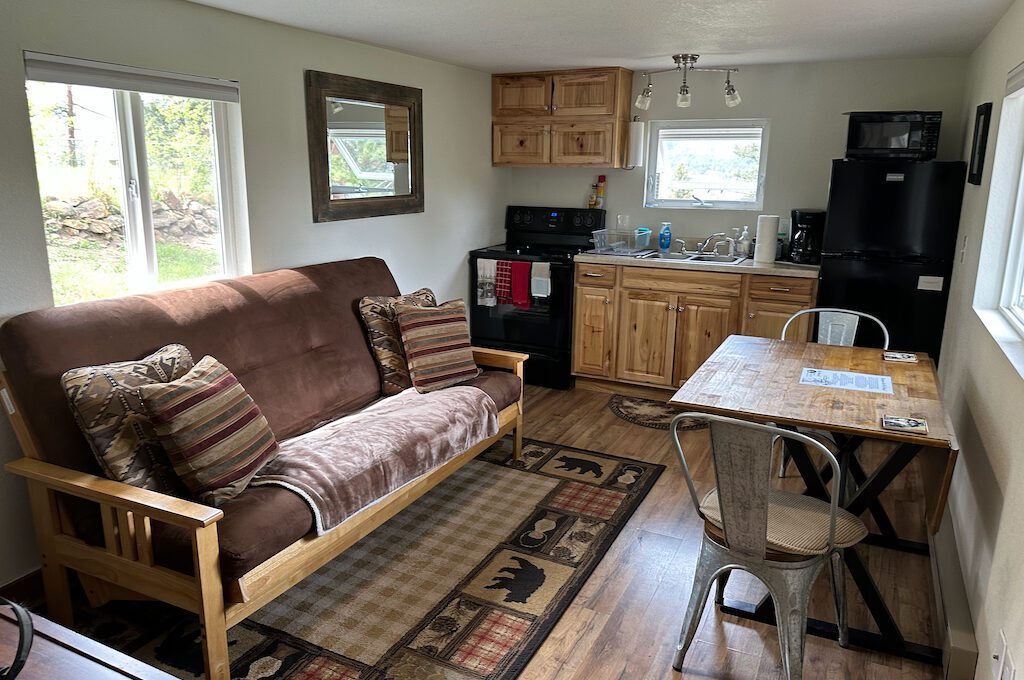
Hosts can do what they want, including cancel on you
One of the biggest issues of staying in Airbnb’s is that hosts can do what they want. This includes unexpectedly canceling your stay.
That can be a major problem when you have booked a place of high demand during a peak season which actually happened to us in the Cape Cod area. There is AirCover which provides support for guests who experience cancellations within 30 days of check-in (or other issues) but other times there’s really nothing you can do about this other than have a Plan B.
It’s possible that this can also happen when you are staying at a hotel but in my experience it’s extremely rare to get walked.
The other side of this is that sometimes you can work with the host to cut your stay short if needed. The key is to let them know as far in advance as possible but we have been able to work with the host to shorten a stay before.
Related: 16 Ways to Avoid Getting Walked by a Hotel
Don’t ignore your relationship
Brad and I have always taken great pride in our commitment to actively managing and nurturing our relationship.
Over the years, we’ve put a lot of work into it and made significant strides, evolving into a couple that values stability while continually seeking new experiences and personal growth together.
Yet, as with any major life transition, our journey into the digital nomadic lifestyle posed its unique set of challenges. Initially, the stability in our relationship was put to the test.
The introduction of countless new variables and adjustments can, at times, unsettle the equilibrium you’ve worked so hard to establish.
For anyone considering a similar path, be prepared for the potential instability that can arise in your relationships as you navigate the complexities of this lifestyle change.
The key, we’ve found, is open and honest communication. Sharing your thoughts, fears, and aspirations with your partner can help you both adapt and find a new balance that accommodates your evolving circumstances. Also, just giving your partner space can also help a lot.

AirBnb quirks and challenges
While our experiences with Airbnb accommodations have been generally positive, like any travel option, there are occasional challenges worth considering.
Here are some noteworthy observations from our journeys:
- Furniture Quality Varies: It’s surprising how much the quality of furniture can differ from one Airbnb to another. This disparity becomes more evident in pet-friendly places where hosts may have concerns about potential wear and tear from animals. Also, what you see in the photos is not always what you will counter in real life.
- Don’t Assume Universal Amenities: Some basic amenities aren’t as universal as you might think, even in 2023. For example. we’ve come across many listings that lack dishwashers, which could be a deal-breaker if you were banking on them for your stay.
- Climate Considerations: Location matters when it comes to climate control. In mountainous or northern regions, it’s not uncommon to find accommodations without air conditioning, even during scorching summer heat waves. Prioritize your comfort by checking for climate control options before booking or bring a fan (or two).
- Wi-Fi Expectations: Advertised Wi-Fi speeds don’t always align with reality. Upon arrival, we’ve encountered situations where the internet didn’t meet our expectations. To avoid connectivity hiccups, it’s wise to conduct a quick Wi-Fi speed test and, if needed, communicate with your host to address any issues.
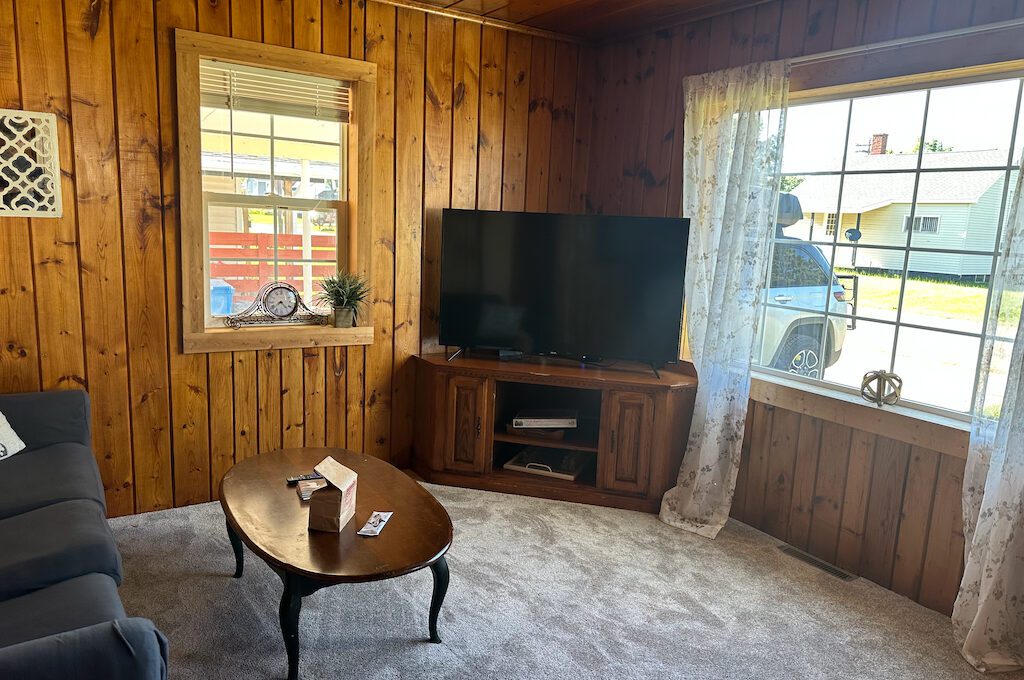
Be ready for some crazy encounters with neighbors
One of the challenging aspects of the nomadic lifestyle is that you can’t always predict what your neighbors will be like until you’ve settled into your new place.
In our travels, we’ve had the privilege of sharing spaces with some fantastic neighbors, like our time in the Upper Peninsula of Michigan, where the sense of community was heartwarming.
However, not every neighborly encounter goes smoothly.
For instance, during our stay in Georgetown, Colorado, we had neighbors with noisy dogs that seemed to have a knack for disturbing our peace.
While it was a bit challenging, we eventually took the initiative to address the situation, and thankfully, we were able to find a resolution — open and respectful communication can go a long way in diffusing tensions.
In Estes Park, our out-of-touch neighbor — who could not help herself but to warn us about the elk seemingly every day — called the cops on me for flying my drone even though I was abiding by the law 100%, had my FAA certification, etc.
When the police arrived, they basically blew off her call but still, having to deal with the police is never something you want to take too lightly.
So, as a digital nomad, be prepared to handle confrontations and diffuse challenging situations. Remember that your stay is temporary, and you won’t be living next door to your neighbors for an extended period. Approach conflicts with patience and empathy, and seek resolution as peacefully as possible.
After all, the beauty of this lifestyle lies in the adventures and experiences it offers, both the smooth and the occasionally bumpy ones.
Final word
Overall, staying in AirBnBs has been a positive experience. A lot of the difficulties will get worked out during your first few months so if you have the patience and passion for what you’re doing, chances are you’ll be fine. But you still have to always be ready for the unexpected and develop a mindset that allows you to thrive in a constantly evolving environment.
Daniel Gillaspia is the Founder of UponArriving.com and the credit card app, WalletFlo. He is a former attorney turned travel expert covering destinations along with TSA, airline, and hotel policies. Since 2014, his content has been featured in publications such as National Geographic, Smithsonian Magazine, and CNBC. Read my bio.

